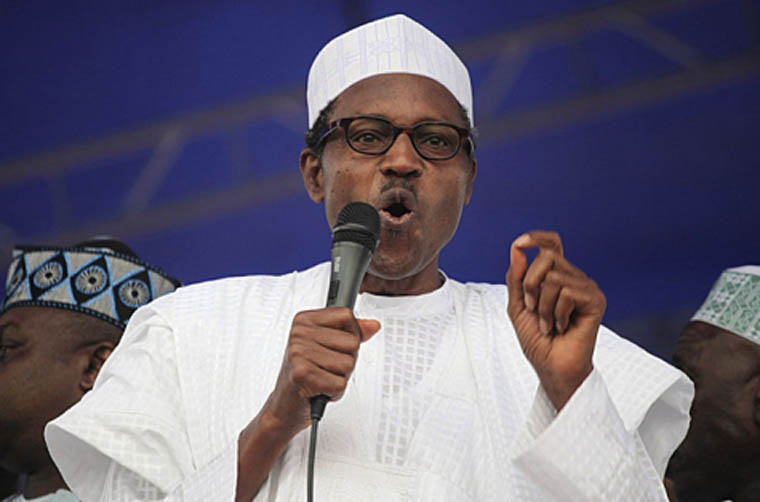Presidential candidate of the All Progressives Congress (APC), General Muhammadu Buhari has said that during his reign as a military head of state, he was pressured to devalue the the nation’s currency and remove subsidy on petroleum product which according to him, he resisted.
Speaking at a town hall meeting on security in Abuja yesterday, Buhari said the sorry state of the Nigerian currency has been a major source of concerned as the Naira exchange rate to an American dollar now goes between 220 and 230 Naira.
He said: “When we came into power in December 1983, we were approached by the world powers at some stage to devalue the Naira, remove petroleum subsidy and remove subsidy on flour, but we refused.
“The issue was that if we get plenty of Naira what are we going to do with it? We even stopped farming and the only thing we get money from them was oil and that was being paid in dollars. If you have excess of groundnut, cocoa, cotton or palm oil, you sell it in foreign exchange.
If you devalue the currency, the Naira will be affected and Nigerians will get their goods and services.
“I was told to remove subsidy on petroleum and because I had the honour of being in charge of petroleum for three and half years, I don’t know in terms of Nigeria, who is subsidising who?
Buhari said the nation has lost greatly from the devaluation of the currency in terms of growing the economy and creating employment for the teeming unemployed Nigerian youths as employers who had to take bank loans to import raw materials and machines are running their industries at a loss.
He also disclosed that with meager resources and a limited time line, he was able to increased Nigeria’s refineries from one with a capacity to refine 50,000 barrel per day to four with refining capacity of 450,000 barrel per day without borrowing a single kobo from anywhere.
Buhari challenge any Nigerian to dispute his claim that he used Nigerian money to build the refineries, lay over 300 kilometers of pipeline and built more than twenty depots across the country, adding that if Nigerians must be ask to pay more for petroleum products, the payment must reflect on the economy.
“To the best of my knowledge then, It is Nigeria petrol and Nigerian capital was used to develop the refineries up to the time I was there.
We build the refineries from one of 50,000 bpd to four of 450,000 bpd, laid pipeline of over 3000 kilometres, built more than 20 depots with all Nigeria money.
“We did not borrow a kobo for that development. I challenge any Nigeria to dispute this. I can understand for us Nigeria to pay, at the pump station the cost of a barrel, but if they are to pay for that, it must reflect on the economy so that we are not surcharged. Otherwise, who is subsidising who.




 Premier League
Premier League